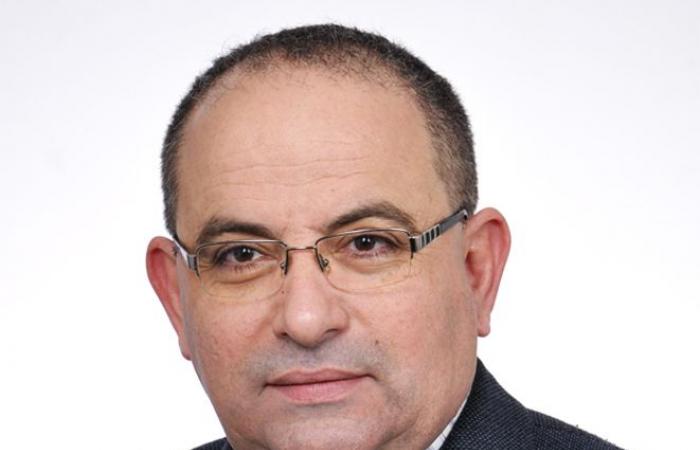Finances News Hebdo: How do you see the impact of these three decrees on the acceleration of the energy transition, particularly for the first decree 804-21-2 relating to smart meters. What does this meter mean for self-producers?
Dr Saïd Guemra: The subject of smart meters is one that is close to my heart, to the extent that I spent several years in private R&D, to develop one of the first smart electricity meters in the world. It was patented at OMPIC in 2003, and accepted in 2004. The key is to be able to have the most significant industrial consumption in real time. The installation of these 100% Moroccan designed meters allowed us to achieve a record energy efficiency of 52% in a pharmaceutical company in Casablanca, by only eliminating energy losses, without any material investment: energy sobriety . It is a fantastic management tool, which today allows energy management companies to remotely monitor their customers’ consumption. The decree that you cited will therefore make it possible, in the case of companies that are going to install renewables, to measure the energy consumed by the customer and the energy that they will inject. The question that arises is that law 82-21 (- law which ensures transparency for manufacturers, by strengthening the mission of the National Electricity Regulatory Authority (ANRE) in setting the tariffs for distribution and surplus services, as well as those for network access – editor’s note), is still not applicable. If you are buying a house, you have two main priorities, namely financing it and getting it registered in your name on the Land Registry books. The two electricity and water meters, or its A+ energy certification, come after, and not before. This is exactly what is happening with this law, which has at least four major obstacles to its implementation. The cost of recovering 20% of the producible electricity injected, still not published by ANRE, the fate of the electricity injected beyond 20%, the percentage of 20% which remains very dissuasive, and the limit lower by 5 MW for self-production. These are the real difficulties which make this law not applicable. Smart meter or not, it remains a measurement tool that is not positioned at the start of the self-production value chain, but really at the end. And sorry to say that this decree must change, for the simple reason that the smart meter measures the energy withdrawn from the network, and the energy injected, but in no case can it measure the renewable energy produced, which is at the basis for calculating 20% of the remuneration by the distributor of the surplus. We must therefore add a second counter, another decree which will be operational in four years and so on. Somehow, we are going in circles with this law. For the moment, this formalization of the smart meter will serve distributors, who bill the energy consumed and the energy injected and produced by their customers, nothing else.
FNH: The second draft decree 761-24-2 concerns the setting of the conditions for granting a certificate of origin. How will this law enable the promotion of renewable energies and green energies, whether for the national or international market?
Dr S.G. : At the risk of repeating myself, but I think the priority is to have a law applicable, in a win-win framework between the distributor and its customer. Only once the law authorizes me to carry out the renewable project in a fluid and simple manner, as in other countries with advanced regulations, will the distributor be able to install the smart meter, and the ministry will be able to issue me a certificate of renewable origin for part of my electricity. If law 81-21 is applicable one day, certification of renewable origin could play a big role in the European carbon tax. The EU can require a certificate of renewable origin which will be added to the company’s carbon footprint and further lend credibility to Moroccan carbon footprints. In the event of exporting Moroccan electricity via our electrical connections with Spain, this certification could be very useful, and even an element of the financing file: in this case, it is a certification commitment. For the Moroccan domestic market, for example, we have foreign companies which are beginning to have the obligation to have an increasingly large percentage of green electricity. And to date, these companies do not have green electricity which can become a blocking element in their activities. To actively contribute to the decarbonization of its companies, Tunisia introduced a decree in 2021 which allows the green surplus to be sold to exporting companies; this surplus is sold by businesses and even households. Our regulations are light years away from this concept. Finally, we must not forget the Moroccan carbon tax in 2025, which will perhaps induce the birth of a Moroccan carbon market, and therefore a need for certification of renewable origin.
FNH: The third decree 153-24-2 relates to the setting of specifications for energy service companies. How do energy service companies operate and what would their contributions be in terms of energy efficiency to achieve the objective of 20% energy savings in 2030.
Dr S.G. : The concept of ESCO service companies (Energy Service Company (Ed.) was born more than thirty years ago in Canada. At the time, we received the designers of this service in Morocco; they carried out prospecting which lasted more than a year, which remained without follow-up The operating principle is based on the financing by the energy efficiency equipment service company, therefore as a third party investor, with sharing of the gains. reached, the service company pays the difference between the forecast gain and the actual gain Canadian ESCOs are supported by investors and banks And the system worked well until the day when some energy service companies had difficulty in insuring. their contractual commitments, and the system has shown its limits. It is an activity which involves a great financial risk. In Morocco, we have around 25 small energy audit companies, which remain the best candidates to become management companies. energy, with a very significant financial risk: if the contractual savings are not achieved, the ESCO loses everything! Personally, I have never been tempted by this model, but with the development of new technologies based on smart meters, especially our smart meter since 2004, the ESCO model, with its dangerousness, has given way to a new service which is instrumented support for companies with the use of meters, intelligent sensors and Big data. This makes it possible to monitor consumption in real time, evaluate by measuring the gains due to sobriety and energy efficiency, and then the contribution of renewable energies and the best ways to use this energy which is impossible to inject into the Moroccan network. . The pioneering countries in this field since 2011 are Germany, Spain, France, the USA and Morocco. Ultimately, our companies no longer need high-level support to help them with energy management. Putting them at ease through measurement, by establishing a climate of trust between the industrialist and the energy service company, is the missing piece to the energy efficiency puzzle which is struggling to take off in Morocco. But the hope is high enough that this notion of creating these companies will be a reality in Morocco, with a secure business model. Finally, I share the opinion of the Minister of Energy Transition: several thousand jobs can be created, when we have thousands of young people trained in energy efficiency and renewables who are unemployed.






